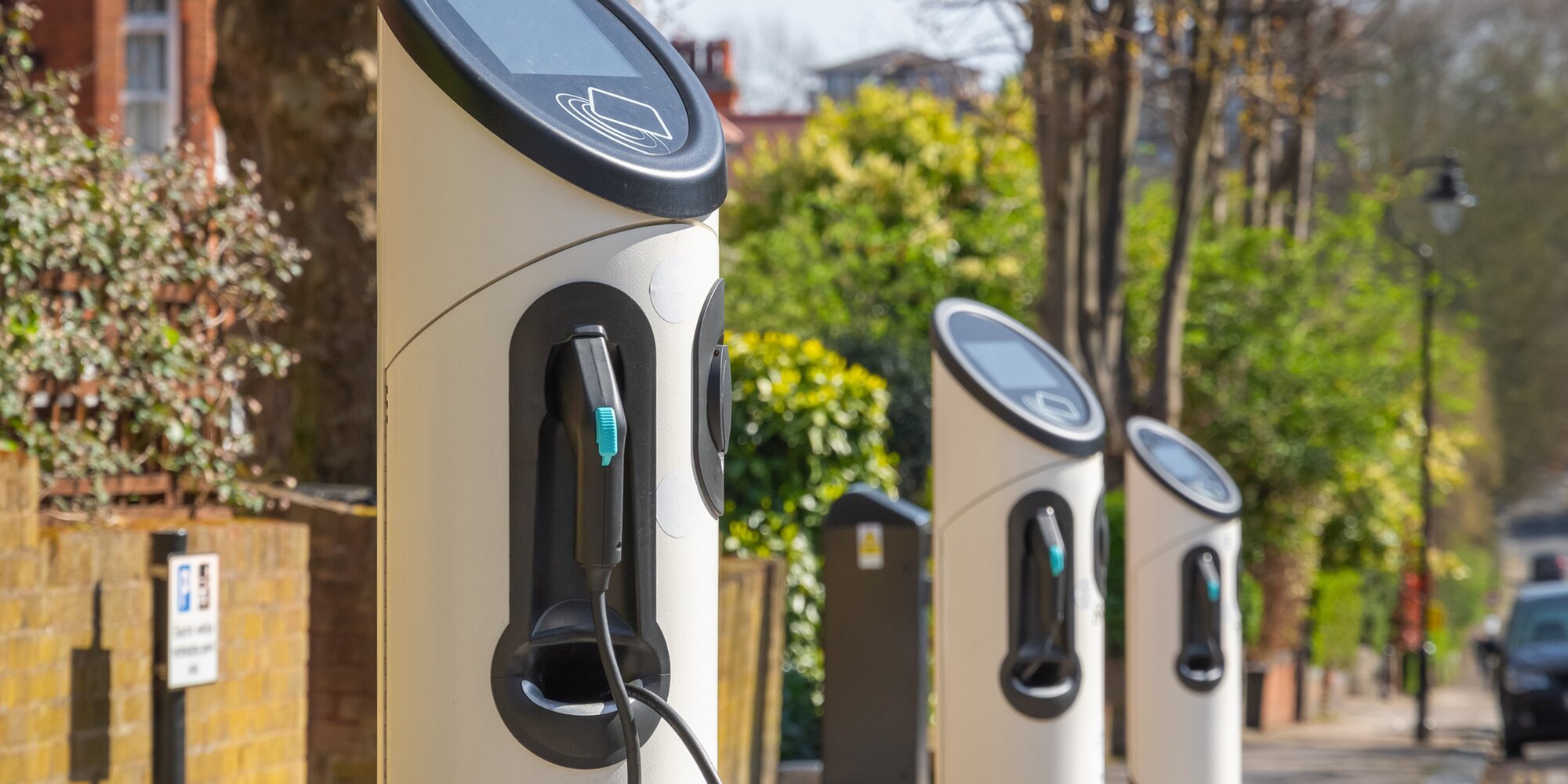Electric mobility: 20 million additional charging points needed by 2030
The expansion of the charging infrastructure is the backbone of electric mobility. However, the backlog here is large, while the number of electric vehicles sold continues to increase. Investment opportunities are opening up for investors.
Author: Manuel Renz

The number of electric vehicles sold will continue to increase in 2023 and the growth trend is expected to continue until at least 2030. Annual global growth of 19.1 per cent is expected.

Compared to the already strong growth in electric vehicles up to 2030, the growth in charging stations is strikingly greater. According to forecasts, the annual growth rate (CAGR) is 27.5%. By 2030, the number of charging stations in Europe should increase from the current five million to over 24 million. Growth will be driven in particular by the expansion of charging infrastructure at home or in apartment blocks.

One of the main reasons for this is that the electricity price per kilowatt hour (kWh) for private households is significantly cheaper than the price at a public charging point. The price for a kWh of electricity in the city of Zurich at the high tariff is currently around 28 centimes (ewz.econatur). By comparison, the average cost at public charging stations in the city of Zurich is currently around 60 centimes per kWh for "slow charging" and 72 centimes per kWh for "fast charging". If you put these prices in relation to the current average diesel and petrol prices in the city of Zurich of CHF 1.96 and CHF 1.79 respectively, the total monthly costs for combustion vehicles in the lower middle class are cheaper than if the electric vehicle has to be refuelled at a public charging station.

Electric vehicles generally result in lower total monthly costs. However, this currently only applies if they are charged at home. Three out of four electric vehicle owners in the DACH region charge at home, according to a survey conducted by UScale.
Enormous potential for growth in the charging infrastructure
The high proportion of apartment blocks can dampen growth. Retrofitting charging infrastructure for electric vehicles in existing apartment blocks can require extensive and costly upgrades to the entire infrastructure. In addition, the installation of e-charging stations in apartment blocks can be subject to complex authorisation procedures and regulations. However, the current costs of wallboxes are significantly lower. Since the high demand for electric vehicles in 2021 and 2022, the prices for "charging stations in the garage" have fallen sharply. The price range is between CHF 300 and CHF 500.
However, only seven per cent of the apartment buildings surveyed currently offer their residents wallboxes or charging points, according to a survey by ADAC. Although the proportion has more than tripled since 2019 (2%), it is still very low. Eleven per cent of properties already offer at least one socket for charging electric vehicles. Three years ago, it was only two per cent. However, these sockets are less suitable than wallboxes, as the charging time is significantly longer in comparison.
Pressure is coming from the political arena: in France and Germany, for example, wallboxes are directly subsidised. Furthermore, the EU Energy Performance of Buildings Directive (EPBD) requires new buildings and buildings undergoing major renovation to either install charging stations or ensure the installation of a cable infrastructure in car parks.
The high proportion of apartment blocks can dampen growth
Although the increased price of electricity is currently making the decision to buy an electric vehicle more difficult, investments in charging infrastructure offer enormous growth potential. In particular, the broad value chain of electricity suppliers, charging station manufacturers, network operators and payment service providers offers investors numerous opportunities to benefit from the future trend of charging infrastructure.

Governments around the world are pledging their support, offering incentives and investing heavily in the expansion of charging infrastructure. The EV charging market is poised for significant growth due to continued technological advancements such as faster charging solutions. Investors can benefit from this trend by participating in the expansion of charging stations and technological innovations and supporting the development of a clean and sustainable transport system. However, due to the dynamic and still very young growth environment, charging infrastructure providers in particular currently still have negative forward ROICs and modest ESG scores in some cases.
| Name | 2yr - Forward ROIC | Enterprise Value / Invested Capital | ZKB Sustainability Score (A-G) |
| Alfen | 33,0% | 5,7x | A |
| Schneider Electric | 13,9% | 2,8x | A |
| ABB | 10,9% | 3,2x | A |
| Name | 2yr - Forward ROIC | Enterprise Value / Invested Capital | ZKB Sustainability Score (A-G) |
| E.ON | 4,8% | 1,0x | D |
| Enel | 7,0% | 1,2x | E |
| Name | 2yr - Forward ROIC | Enterprise Value / Invested Capital | ZKB Sustainability Score (A-G) |
| Chargepoint | - | 1,9x | D |
| Fastned | 2,4% | 1,8x | D |
| Allegro | 20,1% | 1,6x | -
|
(Source: Asset Management Zürcher Kantonalbank, FactSet)
The stocks in the table were selected according to our fundamental financial analysis, but our active fundamental strategies focus primarily on stocks that are characterised in particular by quality aspects (high ROICs, solid financial position, good ESG profile, etc.), which is why we constantly monitor developments in this exciting area and actively adjust our tactical capital allocation on an ongoing basis.
Legal notice
Legal notice
The publications were prepared by the Buy-Side Research of the Asset Management of Zürcher Kantonalbank. The information contained in this document has not been prepared in accordance with any legislation promoting the independence of financial research, nor is it subject to any prohibition on trading following the dissemination of financial research.


